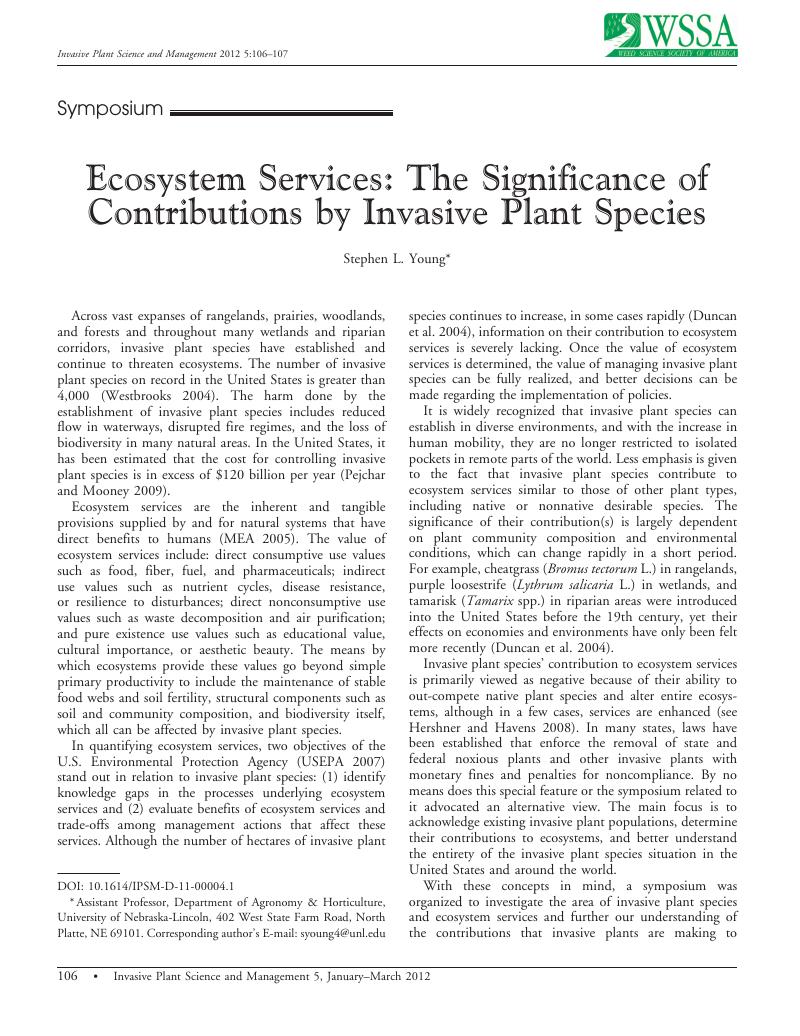Crossref Citations
This article has been cited by the following publications. This list is generated based on data provided by Crossref.
Allen, Jenica M.
Leininger, Thomas J.
Hurd, James D.
Civco, Daniel L.
Gelfand, Alan E.
and
Silander, John A.
2013.
Socioeconomics drive woody invasive plant richness in New England, USA through forest fragmentation.
Landscape Ecology,
Vol. 28,
Issue. 9,
p.
1671.
Pienkowski, Thomas
Williams, Sophie
McLaren, Kurt
Wilson, Byron
and
Hockley, Neal
2015.
Alien invasions and livelihoods: Economic benefits of invasive Australian Red Claw crayfish in Jamaica.
Ecological Economics,
Vol. 112,
Issue. ,
p.
68.
Zivanayi, Musabayana
Ronald, Mandumbu
and
Nyamande, Mapope
2024.
Ecological Consequences of Invasive Weeds: Zimbabwean Experience: A Review
.
Journal of Plant Sciences,
Vol. 12,
Issue. 6,
p.
219.
Musabayana, Zivanayi
Mandumbu, Ronald
and
Mapope, Nyamande
2024.
Effects of Tithonia diversifolia on species composition of other weeds.
African Journal of Agricultural Research,
Vol. 20,
Issue. 8,
p.
641.



